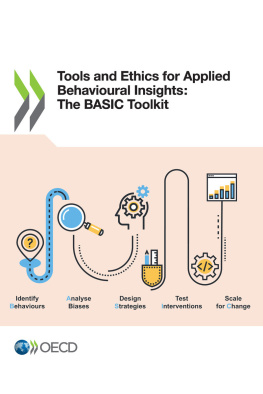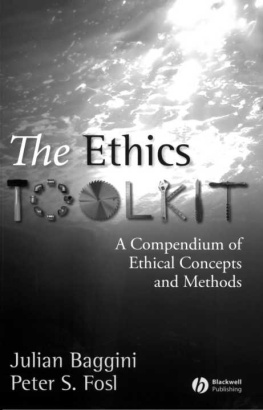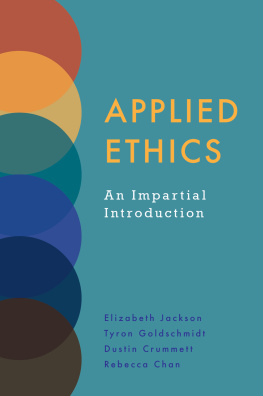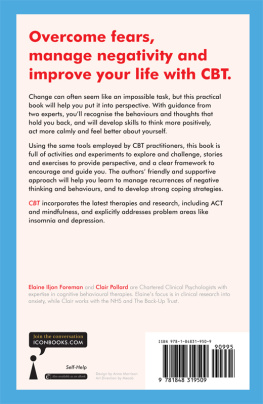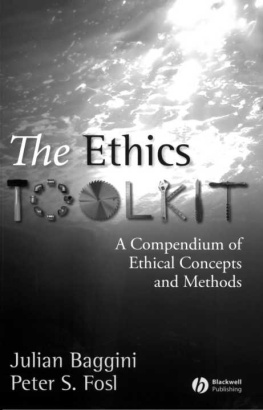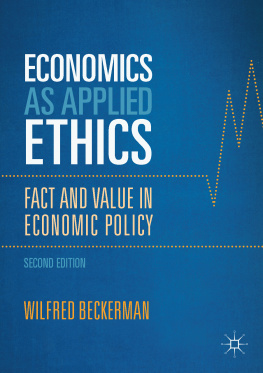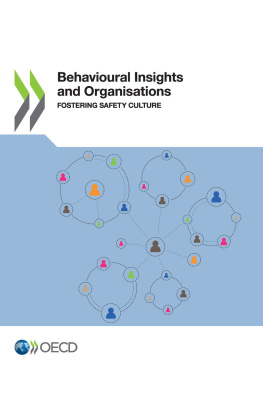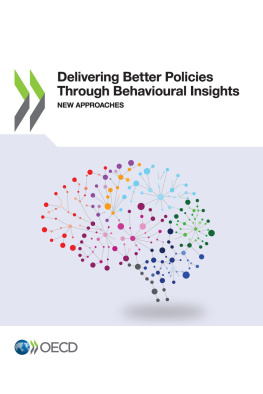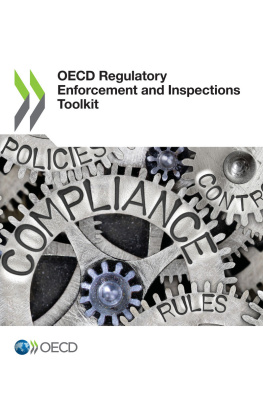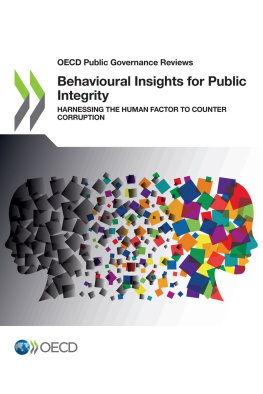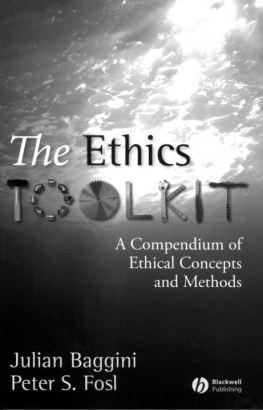OECD - Tools and Ethics for Applied Behavioural Insights: The BASIC Toolkit
Here you can read online OECD - Tools and Ethics for Applied Behavioural Insights: The BASIC Toolkit full text of the book (entire story) in english for free. Download pdf and epub, get meaning, cover and reviews about this ebook. year: 2019, publisher: OECD Publishing, genre: Politics. Description of the work, (preface) as well as reviews are available. Best literature library LitArk.com created for fans of good reading and offers a wide selection of genres:
Romance novel
Science fiction
Adventure
Detective
Science
History
Home and family
Prose
Art
Politics
Computer
Non-fiction
Religion
Business
Children
Humor
Choose a favorite category and find really read worthwhile books. Enjoy immersion in the world of imagination, feel the emotions of the characters or learn something new for yourself, make an fascinating discovery.
Tools and Ethics for Applied Behavioural Insights: The BASIC Toolkit: summary, description and annotation
We offer to read an annotation, description, summary or preface (depends on what the author of the book "Tools and Ethics for Applied Behavioural Insights: The BASIC Toolkit" wrote himself). If you haven't found the necessary information about the book — write in the comments, we will try to find it.
OECD: author's other books
Who wrote Tools and Ethics for Applied Behavioural Insights: The BASIC Toolkit? Find out the surname, the name of the author of the book and a list of all author's works by series.
Tools and Ethics for Applied Behavioural Insights: The BASIC Toolkit — read online for free the complete book (whole text) full work
Below is the text of the book, divided by pages. System saving the place of the last page read, allows you to conveniently read the book "Tools and Ethics for Applied Behavioural Insights: The BASIC Toolkit" online for free, without having to search again every time where you left off. Put a bookmark, and you can go to the page where you finished reading at any time.
Font size:
Interval:
Bookmark:
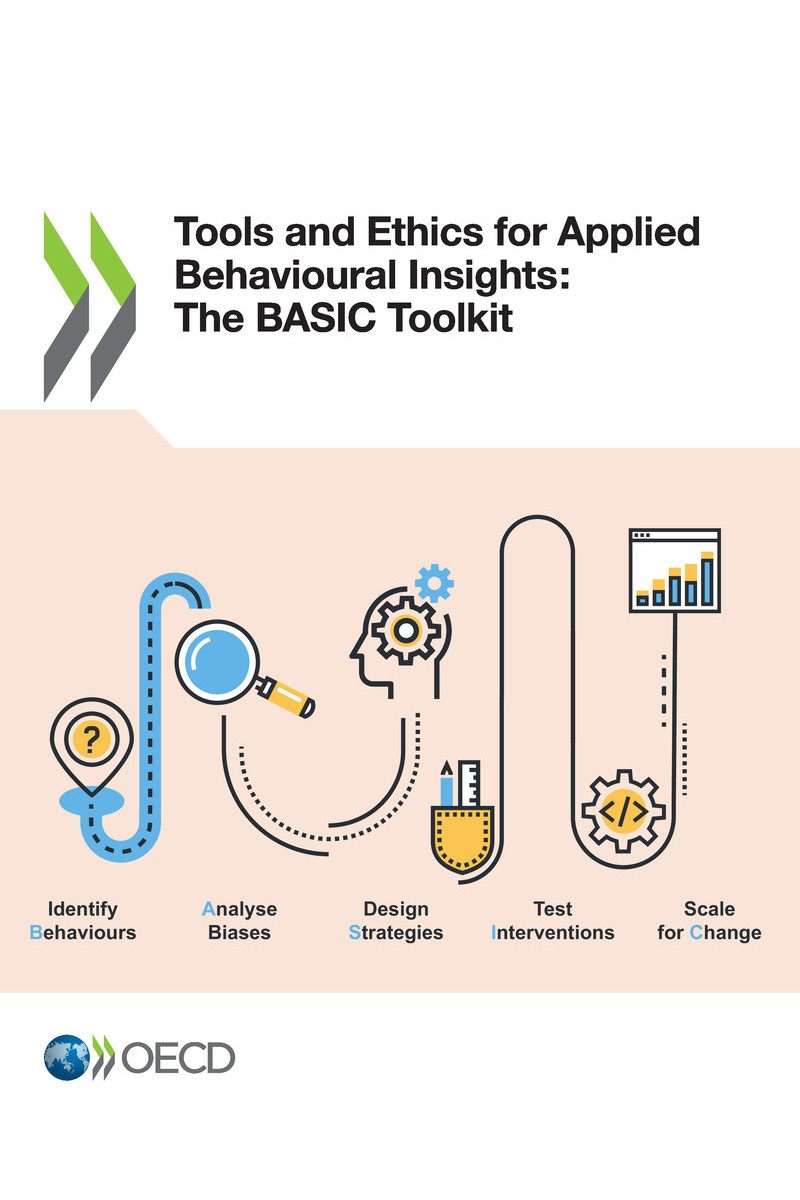
OECD (2019), Tools and Ethics for Applied Behavioural Insights: The BASIC Toolkit , OECD Publishing, Paris, https://doi.org/10.1787/9ea76a8f-en .
Why do certain polices work, improving peoples lives, while others fail? This question confronts policy makers and regulators across the world. Some have answered it by actively using behavioural insights (BI) to understand how individuals and organisations make decisions.
BI is increasingly used in policy making to improve understanding of how context, biases and other influences affect the behaviour of people and organisations. The BI approach is evidence-driven, focussing on understanding what actually drives the decisions of citizens, rather than relying on assumptions of how they should act. In doing so, it helps ensure that policies reflect real needs and behaviours for greater impact and effectiveness.
The OECD has been at the forefront of documenting and researching the use of BI in public policy. In partnership with the community of behavioural policy makers and practitioners from around the world, the OECD identifies and develops tools, approaches, knowledge and standards to support the use of BI.
This report responds to a request from the behavioural community for guidance on how to apply BI more systematically and responsibly. It provides policy makers and practitioners with a set of tools that can be applied along with other existing behavioural frameworks. This toolkit guides the policy maker through a methodology that looks at behaviours, analysis, strategies, interventions and change (abbreviated to BASIC).
The BASIC methodology includes a set of ethical guidelines to help policy makers apply BI responsibly. BI can raise ethical concerns related to collecting data on individual or group behaviours, as well as using experimental methods to test theories on a small scale before implementing them more broadly. Issues can arise around privacy, consent and the ethics of applying certain solutions to only some groups. This toolkit presents both general principles for the ethical application of BI and a set of guidelines to follow during each stage of the BASIC process.
Governments face no shortage of challenges. Addressing these challenges often requires a better understanding of human behaviour. It is our hope that this study will help governments better understand the potential of using BI as a policy tool.

Marcos Bonturi
Director, OECD Public Governance Directorate
The OECD developed this toolkit in partnership with Dr. Pelle Guldborg Hansen of Roskilde University, drawing partly on tools developed by his work with iNudgeyou The Applied Behavioural Sciences Group, applying BI worldwide for over a decade. Dr Hansen prepared the manual, with inputs from Filippo Cavassini and James Drummond. The introductory guide was prepared by Jun Nakagawa and Francesca Papa, with inputs from Filippo Cavassini, James Drummond and Faisal Naru.
OECD work on behavioural insights is conducted under the leadership of Marcos Bonturi, Director, Irne Hors, Deputy Director, and Nick Malyshev, Head of the Regulatory Policy Division, Public Governance Directorate. Peer review comments to the overall report were provided by Irne Hors, Deputy Director, and Martin Forst, Head of the Governance Reviews and Partnership Division, Public Governance Directorate. Eleonore Morena edited the report and Jennifer Stein co-ordinated the editorial process, with editorial support provided by Andrea Uhrhammer.
The OECD Secretariat would like to thank Ammaarah Martinus, Rebecca Ross, Cameron Cyster, and Kathryn Wooldridge, Department of the Premier, Western Cape Government, for their comments on early drafts of the toolkit. A draft of this toolkit was discussed at the Western Cape Government-OECD Behavioural Insights Conference in Cape Town, South Africa, from 27-28 September 2018. The Secretariat would like to thank Marcia Korsten, Deputy Director General and Anthony Hazell, Chief Director Policy and Strategy, Department of the Premier, Western Cape Government, South Africa, as well as all the delegates who attended to the conference and provided valuable feedback during breakout sessions.
Thanks are extended to the members of the behavioural insights community who provided detailed feedback and comments during the public consultation stage. Special thanks go to (in alphabetical order by last name): Muzaffar Abdul Hamid and Sawiah Abdul Samad, Malaysia Productivity Corporation, Malaysia; Andrew Archer, Crown Prince Court, United Arab Emirates; Susanne Baltes, Federal Chancellery, Germany; Brendan Beere, Irish Central Bank, Ireland; Pauline Bertrand and Frdric Boehm, Public Sector Integrity Division, OECD; Solveig Bourgeon, Her Majesty Revenue and Customs, United Kingdom; Emanuele Ciriolo, Foresight and Behavioural Insights Unit, European Commission; Peter de Smedt, DKB Behavioural Insights Team, Belgium; Thomas Dirkmaat, Ministry of Economic Affairs, Netherlands; Rupert Gill, Her Majesty Revenue and Customs, United Kingdom; Catherine Griffin, Australian Taxation Office, Australia; John Guyton, Internal Revenue Service, United States; Elizabeth Hardy, Impact and Innovation Unit, Canada; Jackie Hoare, DEFRA, United Kingdom; Jirina Jilkova, University of Usti; Stefan Kaufman, Environmental Protection Authority, Victoria Government, Australia; Robert Lepenies, Humboldt University; Jens Lundgren, Energy Markets Inspectorate, Sweden; Fadi Makki, Qatar Behavioural Sciences Unit, Qatar; Lindsey Maser, City of Portland, United States; Herbert Mikulasek, Federal Ministry of Finance, Austria; Marliza Mohamed, Inland Revenue Board, Malaysia; Robert Murphy, Department of Health, Ireland; Jeroen Nieboer, Financial Conduct Authority, United Kingdom; Kate Phillips, Department of the Premier, Victoria Government, Australia; Jonathan Porter, Ofcom, United Kingdom; Henriette Prast, Tillberg University; Karl Purcell, Sustainable Energy Authority of Ireland; Leonore Riitsalu, University of Tartu; Ingunn Sandaker, Oslo University; Mariana Sarmiento, Communications Regulation Commission, Colombia; Dilip Soman, University of Toronto; Zhi Soon, The Behavioural Insights Team; Glen Steyn, Department of Economic Development and Tourism, Western Cape Government, South Africa; Marco Tagliabue, Oslo University; Silje Jenny Undahl, Tax Norway; Rene van Bavel, Joint Research Centre, European Commission; Suzanne van Melis, Ministry of Economic Affairs, Netherlands; Chiara Varazzani, Behavioural Economics Team of the Australian Government, Australia; and Alyssa Whalen, Impact and Innovation Unit, Canada. A special thank you is extended to all others who have inputted their ideas to the development of this toolkit along the way and are too many to name.
Font size:
Interval:
Bookmark:
Similar books «Tools and Ethics for Applied Behavioural Insights: The BASIC Toolkit»
Look at similar books to Tools and Ethics for Applied Behavioural Insights: The BASIC Toolkit. We have selected literature similar in name and meaning in the hope of providing readers with more options to find new, interesting, not yet read works.
Discussion, reviews of the book Tools and Ethics for Applied Behavioural Insights: The BASIC Toolkit and just readers' own opinions. Leave your comments, write what you think about the work, its meaning or the main characters. Specify what exactly you liked and what you didn't like, and why you think so.

